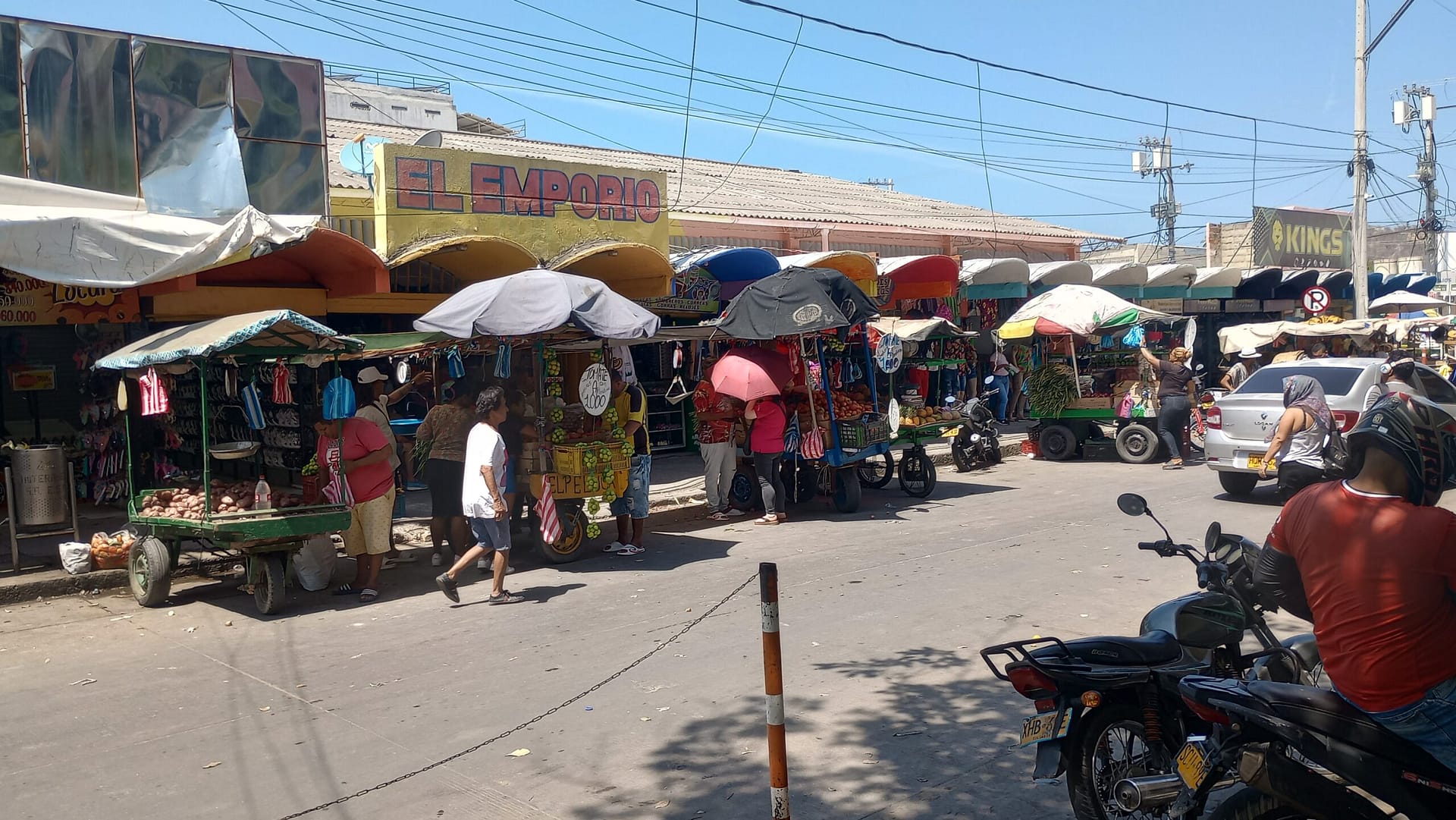From Valledupar to Riohacha
I am in Valledupar, capital of the Cesar department in north-eastern Colombia and I want to go to Riohacha, capital of the La Guajira department in outermost north-eastern Colombia. It is a distance of around 200 kilometers, around 4 hours travel time due to a spare network of roads and many stops along the way. Apparently there is not enough demand for the trip, to arrange larger vehicles at set times. This is surprising, since the network of regional buses in Colombia is otherwise very dense, at least when it comes to larger cities (like these two). So while I am told at the bus terminal that there is no such connection, I should go instead to the front of the terminal and try my luck there.
The market will solve this
Because apparently, demand is high enough to fill up a small car every half hour with enough paying passengers, who want to go far enough in the same direction to make a trip worth it. The service is more expensive than the price for a comparable route with the bus, but in return it takes you “door to door”. Delivery of goods is also possible. As passengers and goods leave the vehicle along the route, other ones are picked up along the way. In an ideal case, the capacity of the vehicle is exhausted at all time, so that it is as profitable as possible. Many individual cars travel simultaneously on the same routes, but they know each other and work together. In order to keep the profit margins as high as possible, the timetables are adjusted on the fly, when the vehicles meet at junctions and exchange passengers spontaneously. The fares are redistributed between the drivers and the luggage is reloaded between their cars.
Efficiency and trust
Running business with scarce resources requires efficiency more than anything else. Working vehicles and cell phones are necessary. However, no expendable resources are wasted on tickets, inflexible timetables, standardized vehicles, uniforms, centralized communication and so on. Customer security, responsibility and transparency of the service are replaced by cost neutral (but nevertheless very valuable good) trust. You trust that the fares you have paid will be exchanged correctly, that there will be no misunderstandings about your destination, that you will actually be picked up by another car at the corner where you were dropped off, that your deliveries will be handled carefully, etc. Not only is trust an essential prerequisite for everything to run smoothly and efficiently, but it is also a prerequisite for people to make use of the service.
Eurocentrism and the state
On few issues Eurocentrism is still as blatant and persistent as on the assessment of statehood and regulation in “the countries of the global south”. The genesis of the “modern” nation state in Europe is shaped by the Eurocentric view of the colonial era in that it occurred. Eurocentrism was central in organizing and legitimizing the economic exploitation of the colonies, which provided the basis for industrialization, “modernity” and European prosperity. In the colonies meanwhile, these parts that were easy to control and govern were viewed as good, civilized and productive, while those parts that evaded control and were less understood were generally viewed as evil, dangerous and unproductive. From a subjective perspective this may have seemed that way, but objectively of course it was not necessarily in the interest or for the benefit of every colonized person to be administered as intensely as possible by the European colonial power.
Eurocentrism and informality
After the independence of the newly created “developing countries”, “strong institutions” have ever since been defined as a central goal in the context of development aid. Not only is this quite unimaginative, but above all it ignores the socio-cultural, economic and political genesis of post-colonial states. Working life in today’s Europe, for example, is highly regulated with its many labor, property and tax laws. It is legally not possible to regularly receive money for an activity or product without some kinds of conditions that have to be complied. In contrast, worldwide there is the “informal” economy (or underground economy). The term itself suggests a kind of state of emergency, a crossing of limits, the beyond, for example referring to someone who prepares something to eat at home and sells it on the street, or who transports people from A to B for a fee without this being accounted for externally. In Latin America and North Africa, the informal economy employs around 50% of all working people. In some countries in Asia and sub-Saharan Africa it is up to two thirds.
We are where the top is!
According to the Eurocentric credo differences are not viewed as differences but as deficiencies. Informality is interpreted as both a cause and an outcome of development deficits. Informality certainly has many disadvantages and unresolved problems compared to a “formalized” economy, but usually there are good reasons, for its existence. Not only is it the oldest and continuous form of economy, but it offers a livelihood to a significant amount of people, that otherwise wouldn’t have one and fulfills infrastructural and socio-economic functions beating the competition. Informality covers supply with food, basic goods, local and long-distance public transport, tourism and even urban development, when entire districts are created informally. On the one hand, the state loses tax money and control, which it could have ideally used for the common good, on the other hand, a feeling of togetherness and trust is cultivated in the community, with which it can autonomously face even major challenges.



